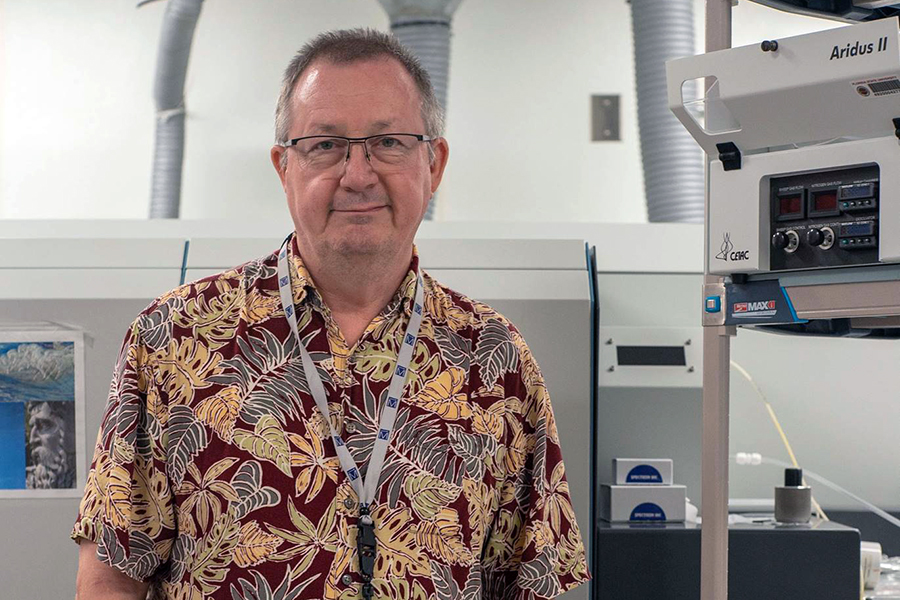Geochemist named fellow of prestigious American Geophysical Union

A Florida State University geology professor and director of the National High Magnetic Field Laboratory’s geochemistry program has been elected a fellow of the American Geophysical Union, an organization representing some 60,000 professionals in the Earth and space sciences.
Professor Vincent Salters was among only 62 — about 0.1 percent — of AGU members to receive the honor.
“It’s a recognition from your peer community,” said Salters from his MagLab office. “I am honored by this tribute.”
Salters joins fellow FSU professors Jeff Chanton and Allan Clarke, both colleagues in the Department of Earth, Ocean and Atmospheric Science, in this exclusive group.
“Vince heads a talented geochemistry team that contributes greatly to the intellectual scope and vibrancy of the lab,” said National MagLab Director Greg Boebinger. “This is a wonderful recognition of his scholarship.”
At the MagLab, geochemists examine trace elements and isotopes in rocks and other samples from around the world in order to better understand Earth’s processes and environments. Salters’ AGU honor specifically recognizes his work pioneering analytical techniques that look at isotopes of the elements lutetium and hafnium in samples from the Earth’s mantle, the 2,700-kilometers-deep layer of our planet lying beneath the crust.
Lutetium can decay into hafnium, and studying how the ratio of those two elements changes over time in the mantle sheds light on its history. After combining that data with studies of other isotopes, Salters said, “Then we can start piecing together the story of how the mantle formed and evolved.”
For example, Salters found that mantle samples collected from different areas of the sea floor had different isotopic compositions.
“The mantle that we think of as being one type of rock is not one type of rock,” Salters said. “On a very basic level, that is one of the things we’ve found.”
The 2018 AGU fellows will be officially celebrated in Washington, D.C., in December. About a month later, Salters will be on a research vessel near the Marion Rise, a 3,400-kilometers-long, up to 2,000-meters-high volcanic mountain range in the Southern Ocean.
“There is no good explanation for that huge feature,” Salters said. “We will get the chance to make the measurements and obtain the samples that will result in a new theory for that mountain range.”

